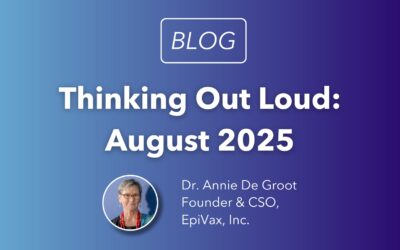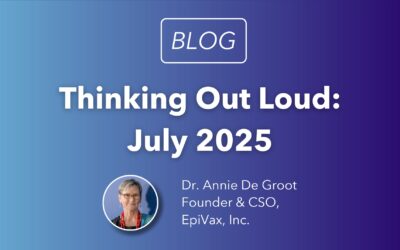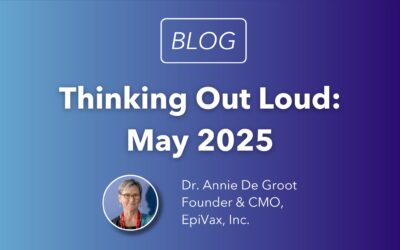Optimize Your Immunogenicity Strategy with Trusted Expert Advice
Immunogenicity is a critical factor in biologic drug development, with the potential to determine a therapy’s success or failure. Undesirable immune responses, including the formation of anti-drug antibodies (ADAs), can compromise drug efficacy, alter pharmacokinetics, and trigger hypersensitivity reactions. In severe cases, immunogenicity concerns have halted otherwise promising therapies in clinical trials or after approval. Given that 90% of clinical drug development programs fail before reaching FDA approval, proactively assessing immunogenicity risk is not just a formality – it’s essential for success.
Regulatory agencies have increased their focus on immunogenicity strategies in preclinical development. FDA guidance emphasizes structured risk assessments and mitigation planning, which must be clearly outlined in the Investigational New Drug (IND) application. Sponsors are expected to present a well-reasoned approach to immunogenicity risk early in development to improve their chances of regulatory success. The FDA’s recently released roadmap to reducing animal testing reinforces this direction, highlighting the value of in silico and in vitro tools as New Approach Methodologies. These methods are central to EpiVax’s approach and form the foundation of our consulting services.
Navigating Immunogenicity Risk
Immunogenicity risk is influenced by a complex interaction of factors:
- Product-related: Amino acid sequence, glycosylation patterns, and formulation impact immunogenic potential.
- Patient-related: Genetics, underlying health conditions, and concurrent medications introduce variability in immune responses.
- Treatment-related: Dosing regimen, route of administration, and treatment duration can all influence ADA development and clinical consequences.
With so many variables at play, navigating immunogenicity risk and evolving agency expectations requires deep scientific and regulatory expertise. The FDA and other agencies expect sponsors to provide a structured, well-supported immunogenicity risk assessment, but determining the right approach for a specific therapeutic can be daunting. Missteps can lead to delays, unexpected safety concerns, or costly program adjustments.
As Dr. Amy Rosenberg, former division director at the FDA, explains:
“To best ensure that drug development is not sabotaged by clinically relevant immune responses to the therapeutic, high-level expertise in immunogenicity risk assessment and mitigation strategies is critical. Knowledge of available regulatory actions and interactions with regulatory agencies that spur rather than delay development of novel therapeutics is essential.”
With 33 years’ experience overseeing the regulation of biologics, Dr. Rosenberg deeply understands how regulatory agencies evaluate immunogenicity risk and what they expect from sponsors.
Trusted Expert Advice: Immunogenicity Guidance for Every Stage of Development
Navigating immunogenicity risk requires more than just data; it takes experience, strategic thinking, and an understanding of evolving regulatory expectations. That’s where Trusted Expert Advice (TEA) comes in.
EpiVax developed TEA to support biotech teams of all sizes and stages in confidently assessing and managing immunogenicity risk. Whether refining early-stage R&D strategies, preparing for an IND submission, planning clinical trials, or looking to mitigate clinical immunogenicity, TEA provides direct, one-on-one consulting tailored to each company’s unique needs.
Our seasoned immunogenicity consultants don’t just interpret regulatory guidance – they help anticipate challenges, refine risk assessment and mitigation strategies, and ensure that immunogenicity evaluations are both scientifically sound and agency-ready. With deep expertise in both immunogenicity science and regulatory oversight, TEA helps sponsors align risk assessments with FDA expectations and make informed decisions at every stage of development.
Beyond regulatory strategy, EpiVax’s TEA consultants deliver insights to give your pipeline a competitive edge at every step of the preclinical development journey:
Simplify lead candidate selection: Receive guidance in ranking candidates, allowing you to prioritize the best options for further development.
Focus deimmunization and optimization: Identify critical protein regions, enabling you to optimize therapeutic design and reduce immunogenicity risk.
Maximize R&D efficiency: By minimizing the need for costly downstream studies, TEA consultants help you save resources in the future — on average, 20-fold.
Support strategic planning and fundraising: Reliable immunogenicity data bolsters grant applications, publications, investor materials, internal product characterization discussions, and more.
Meet a Featured Consultant
Vibha Jawa, Ph.D., FAAPS, Chief Scientific Officer, EpiVax, Inc.
Dr. Jawa brings over 25 years of experience advancing biologics, gene therapies and vaccines. As a globally recognized expert in translational medicine and immunogenicity strategy, she has supported over 20 successful IND, BLA, and MAA filings across a wide range of therapeutic modalities.

Prior to joining EpiVax as Chief Scientific Officer, Dr. Jawa held senior leadership positions at Bristol Myers Squibb, Merck, and Amgen, where she led cross-functional teams in DMPK, bioanalysis, and immunogenicity assessment from discovery through clinical development. Earlier in her career, she contributed to the development of the first approved gene therapy product as part of the team at the Institute of Gene Therapy. She is an extensively published thought leader with more than 100 peer-reviewed publications and holds leadership roles in prominent scientific organizations, including AAPS, IQ, and EIP.
Through TEA consulting, Dr. Jawa offers biotech innovators more than just guidance; she brings a strategic perspective shaped by decades of therapeutic development experience. One-on-one discussions with her will allow teams to design smarter preclinical programs, translate in silico and in vitro data into confident decisions, and approach regulatory interactions with clarity.
Whether you’re preparing your first IND application or navigating the challenges of a complex modality, Dr. Jawa’s insights will support better planning, stronger submissions, and more informed development decisions.
Want to ensure immunogenicity is never a roadblock? Let’s discuss how personalized TEA consulting can help you navigate immunogenicity challenges before they arise.
EpiVax offers a range of in silico immunogenicity assessments designed to support preclinical development at every stage. With industry-leading tools and expert-driven analyses, these fee-for-service and SaaS options provide critical data on T cell epitope content, helping drug developers refine and advance their pipelines with confidence. Learn more.


